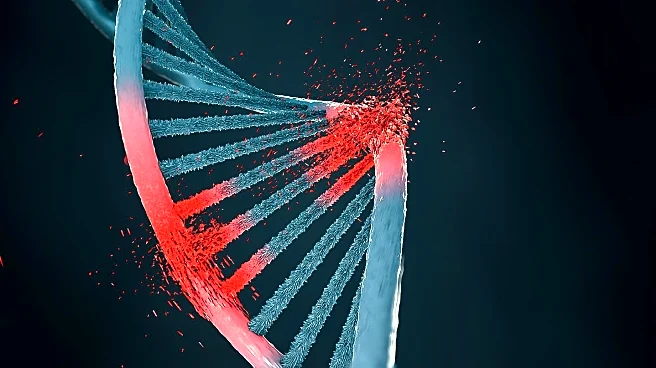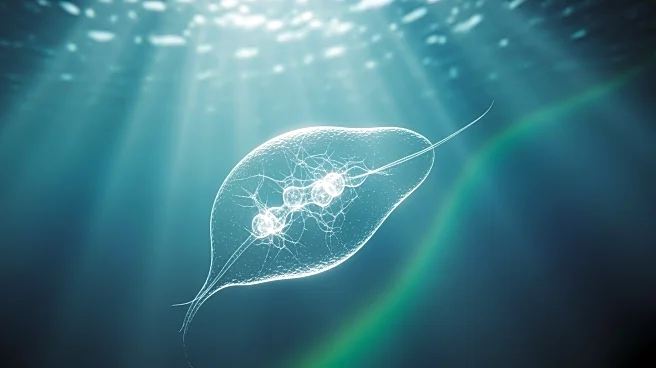What's Happening?
Halia Therapeutics has received Orphan Drug Designation from the U.S. Food and Drug Administration (FDA) for its investigational drug ofirnoflast (HT-6184) for the treatment of Myelodysplastic Syndromes (MDS). MDS is a group of bone marrow disorders characterized
by ineffective blood cell production and a risk of progression to acute myeloid leukemia. Ofirnoflast is a selective NEK7 allosteric modulator designed to target the NLRP3 inflammasome, a key driver of chronic inflammation in MDS. This designation provides Halia with several incentives, including tax credits, exemption from FDA user fees, and potential market exclusivity upon approval.
Why It's Important?
The Orphan Drug Designation is crucial for Halia Therapeutics as it supports the development of ofirnoflast, a novel treatment approach for MDS. This designation highlights the potential of targeting inflammasome biology to address the underlying causes of MDS, offering hope for improved treatment outcomes. The incentives provided by the FDA can accelerate the drug's development and bring it to market faster, potentially benefiting patients with limited treatment options. This development also underscores the importance of innovation in addressing rare and challenging diseases.
What's Next?
Halia Therapeutics will likely continue its clinical development of ofirnoflast, focusing on demonstrating its safety and efficacy in treating MDS. The company may also explore additional applications of the drug in other inflammation-driven diseases. The FDA's incentives will support these efforts, potentially leading to new treatment options for patients with MDS. As the drug progresses through clinical trials, Halia will need to engage with regulatory authorities to ensure a smooth path to market approval.















